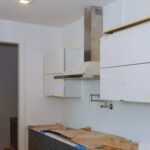Are you wondering what home improvements increase property taxes Illinois? Property taxes in Illinois can be influenced by a variety of factors, including the value of your home and any renovations or additions that you make. Understanding how different home improvements can impact your property taxes is crucial for homeowners in Illinois who are looking to increase the value of their homes while managing their tax liability.
In this article, we will explore the various factors that influence property taxes in Illinois and delve into specific renovations that can increase property taxes. From adding square footage to upgrading kitchen and bathrooms, we will examine the impact of different home improvements on property taxes in Illinois. Additionally, we will discuss the effect of adding outdoor improvements such as decks, pools, and landscaping, as well as energy-efficient upgrades.
Navigating property taxes after making home improvements can be challenging, so we will also provide tips for managing your property tax liability effectively. By the end of this article, you will have a better understanding of how to make informed decisions about home improvements in Illinois while considering their impact on property taxes.
Factors That Influence Property Taxes in Illinois
Property taxes in Illinois are calculated based on a variety of factors, and understanding these influences can help homeowners make informed decisions about home improvements. One of the main factors that influence property taxes in Illinois is the assessed value of the property. This value is determined by local assessors and is based on the market value of the property, as well as any improvements that have been made.
Another factor that can influence property taxes in Illinois is the tax rate set by local governments. This rate is applied to the assessed value of the property to determine the amount of property tax owed. Local governments may adjust this tax rate depending on their budget needs, infrastructure projects, and other financial considerations.
In addition, home improvements can also impact property taxes in Illinois. When homeowners make renovations or additions to their properties, it can increase the assessed value of the home, leading to higher property taxes. This leads to a common question that many homeowners ask: what home improvements increase property taxes in Illinois? It’s important to consider this question before making any major changes to a home, as it can have long-term financial implications for homeowners.
| Factors That Influence Property Taxes | Impact |
|---|---|
| Assessed Value of Property | Determines how much tax will be owed |
| Tax Rate Set by Local Governments | Affects the amount of tax owed based on assessed value |
| Home Improvements | Can increase assessed value and lead to higher property taxes |
Renovations That Can Increase Property Taxes in Illinois
When it comes to home improvements, many homeowners in Illinois are concerned about how their renovations will impact their property taxes. Understanding the specific renovations that can increase property taxes in Illinois is crucial for making informed decisions as a homeowner.
One of the factors that can influence property taxes in Illinois is the value of your home. Renovations that increase the value of your property are likely to result in higher property taxes. This includes adding square footage to your home, upgrading kitchen and bathrooms, adding outdoor improvements such as decks, pools, and landscaping, and making energy-efficient upgrades.
Adding square footage to your home is one of the most significant ways to increase its value and subsequently raise property taxes. A larger home typically results in higher property taxes due to the increased assessed value. It’s important to consider this when planning any additions to your home and factor in potential tax implications.
| Renovation | Impact on Property Taxes |
|---|---|
| Adding Square Footage | Likely to result in higher property taxes due to increased assessed value |
| Upgrading Kitchen and Bathrooms | May increase the value of your home and result in higher property taxes |
| Outdoor Improvements (Decks, Pools, Landscaping) | Can contribute to an increase in property taxes by boosting overall property value |
The Impact of Adding Square Footage to Your Home
Adding square footage to your home can have a significant impact on your property taxes in Illinois. When you increase the size of your home, the assessed value of your property is likely to go up, resulting in higher property taxes. It’s important to understand how this can affect your finances and make informed decisions about expanding your home.
Assessment of the Added Square Footage
When you add square footage to your home, the local assessor will re-evaluate the property and adjust its assessed value accordingly. This means that you can expect an increase in property taxes based on the added square footage. It’s essential to consider this potential increase when planning for any home expansions.
Considerations Before Adding Square Footage
Before deciding to add square footage to your home, it’s crucial to weigh the potential increase in property taxes against the benefits of having a larger living space. For some homeowners, the additional cost may be worth it for the comfort and convenience of a bigger home. However, it’s essential to carefully assess whether the financial investment aligns with your long-term goals.
Seeking Professional Guidance
To better understand how adding square footage will impact your property taxes in Illinois, it’s advisable to seek guidance from real estate professionals or tax advisors. They can provide valuable insights into the potential tax implications and offer advice on how to manage any resulting increases in property taxes. With their assistance, you can make well-informed decisions about expanding your home while considering its impact on property taxes.
Upgrading Kitchen and Bathrooms
When considering home improvements that can potentially increase property taxes in Illinois, upgrading your kitchen and bathrooms can have a significant impact. These areas are some of the most used spaces in a home, making them prime candidates for renovations. However, it’s essential to understand how these upgrades can affect your property taxes before diving into any major renovations.
Factors That Influence Property Taxes When Upgrading Kitchen and Bathrooms
In Illinois, property taxes are determined by a variety of factors, including the overall value of your home. When you upgrade your kitchen and bathrooms with high-end materials, modern appliances, and luxurious fixtures, the assessed value of your home may increase. This could result in higher property taxes due to the increased value of your property.
Strategies for Minimizing the Impact on Property Taxes
If you’re concerned about how upgrading your kitchen and bathrooms may affect your property taxes in Illinois, there are strategies you can use to minimize their impact. For example, focusing on making energy-efficient upgrades alongside cosmetic improvements can help mitigate potential increases in property taxes. Additionally, consulting with a local real estate agent or tax assessor can provide insight into how specific renovations may impact your property taxes.
Before embarking on kitchen and bathroom renovations, it’s crucial to understand the potential impact they may have on your property taxes in Illinois. By being informed about the factors that influence property taxes and implementing strategies to minimize their effects, homeowners can make confident decisions about upgrading these vital areas of their homes without experiencing substantial increases in their tax bills.
The Effect of Adding Outdoor Improvements
When it comes to making home improvements in Illinois, adding outdoor amenities such as decks, pools, and landscaping can have a significant impact on property taxes. These types of improvements can increase the value of your home, which in turn can lead to an increase in property taxes. Homeowners in Illinois should carefully consider the potential tax implications before investing in these types of outdoor upgrades.
Adding a deck or pool to your property can enhance its aesthetic appeal and increase its market value. However, it’s important to note that these improvements may also result in higher property taxes. The additional recreational space and luxury features can make your home more desirable, but they can also make it more valuable in the eyes of the assessor.
Landscaping is another area where homeowners should proceed with caution. While improving your landscaping can beautify your property and add curb appeal, it may also lead to higher property taxes if it significantly increases the overall value of your home. Before undertaking extensive landscaping projects, it’s advisable to consult with a professional assessor to understand how these improvements may impact your property taxes.
Energy-Efficient Upgrades and Their Impact on Property Taxes
Energy-efficient upgrades not only benefit the environment and your utility bills, but they can also have an impact on your property taxes in Illinois. Here are some energy-efficient home improvements that can potentially increase your property taxes:
- Installing solar panels
- Upgrading to energy-efficient windows and doors
- Adding insulation to improve energy efficiency
- Upgrading HVAC systems to more efficient models
When you make these kinds of improvements to your home, it can increase its assessed value, which in turn can lead to higher property taxes. In Illinois, the assessor may take into account factors such as the cost of the improvement, potential savings from the improvement, and any available tax incentives for energy-efficient upgrades.
It’s important to weigh the potential increase in property taxes against the long-term benefits of energy-efficient upgrades. While you may see an initial bump in property taxes, the savings on your energy bills and potential tax incentives for these improvements could offset that increase over time. Before making any energy-efficient upgrades, it’s advisable to consult with a local real estate agent or appraiser to understand how these improvements could affect your property taxes in Illinois.
Tips for Managing Property Taxes After Making Home Improvements
After making home improvements in Illinois, it’s important to understand the potential impact on your property taxes. With the right knowledge and strategic planning, you can effectively manage and minimize any increase in property taxes resulting from your renovations. Here are some tips for managing property taxes after making home improvements:
- Understand the Assessment Process: Familiarize yourself with how property assessments are conducted in Illinois. This includes knowing how your local assessor determines the value of your home and how renovations are taken into account.
- Keep Records of Improvements: Maintain detailed records of the home improvements you have made, including renovation costs, permits, and receipts. Having this information readily available will be helpful if you need to challenge an inaccurate assessment.
- Monitor Assessment Notices: Stay vigilant about reviewing assessment notices from your local taxing authority. If you believe the assessed value of your property has been unfairly increased due to renovations, consider filing an appeal.
It’s also important to keep in mind that certain home improvements may actually qualify for tax incentives or exemptions in Illinois. For example, energy-efficient upgrades such as solar panels or insulation installations may make you eligible for state or federal tax credits. Before embarking on any significant renovations, it’s advisable to research potential tax benefits that could offset any increase in property taxes.
Ultimately, proactive management of property taxes after making home improvements in Illinois involves staying informed and prepared. By understanding the assessment process, keeping thorough records, monitoring assessment notices, and exploring potential tax incentives, homeowners can navigate the implications of their renovations with confidence and financial savvy.
Conclusion
In conclusion, when it comes to making home improvements in Illinois, it is crucial to consider the potential impact on property taxes. Understanding the factors that influence property taxes, such as renovations and added square footage, can help homeowners make informed decisions about their home improvement projects.
Homeowners should be aware of how certain renovations can increase property taxes in Illinois. Upgrading kitchens and bathrooms, adding outdoor improvements like decks or pools, and incorporating energy-efficient upgrades can all have an impact on property taxes. It is important to weigh the potential increase in property taxes against the benefits of these renovations in order to make the best decisions for your home and finances.
In addition to considering the impact on property taxes, homeowners should also take steps to manage their property taxes effectively after making home improvements. This may involve seeking out exemptions or assessment appeals to ensure that their property taxes accurately reflect the value of their home. By being proactive and staying informed about property tax regulations and procedures in Illinois, homeowners can better manage the financial implications of their home improvement projects.
Frequently Asked Questions
What Is a Home Improvement Exemption in Illinois?
A home improvement exemption in Illinois allows homeowners to make property improvements without increasing the assessed value of their home for up to four years. This exemption aims to encourage property owners to invest in improving their homes without being penalized with higher property taxes.
How Can I Lower My Property Taxes in Illinois?
There are several ways to lower property taxes in Illinois, such as claiming exemptions for which you qualify, appealing the assessment if you believe it is too high, and keeping your property well-maintained to avoid any penalties or fines. Additionally, staying informed about property tax laws and seeking professional assistance can also help in lowering property taxes.
How Do I Fight Property Tax Increase in Illinois?
Fighting a property tax increase in Illinois involves closely reviewing the notice of assessment for errors, gathering evidence to support a lower valuation of your property, and filing an appeal with the county assessor’s office within the specified timeframe. Seeking legal counsel or consulting with a professional appraiser can also be beneficial when fighting a property tax increase.

I’m thrilled to have you here as a part of the Remodeling Top community. This is where my journey as an architect and remodeling enthusiast intersects with your passion for transforming houses into dream homes.





